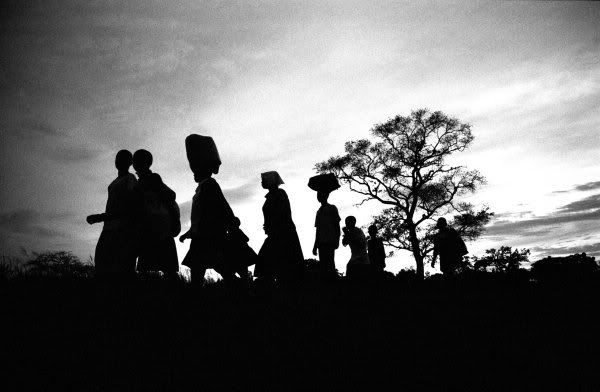The night-walkers of Uganda
Some carry sacks or rolled-up blankets on their shoulders. They scramble over grassy banks and hurry down the sun-scorched roadside on the way to the night shelters, which are guarded by government troops.
In any other country a 14-year-old girl leaving her home and an anxious mother for the night would spell rebellion. Here, it’s simply about survival. “We fear the rebels, we fear thugs and robbers who come at night to disturb us,” says Mary as she walks with a swinging stride.
On a troubled continent, the war in this region stands out. It is Africa’s longest-running civil war, and perhaps the only conflict in history in which children are both the main victims and the principal aggressors. Mary and the other children walk to safety every night because they fear, with good reason, abduction by the Lord’s Resistance Army (LRA), a Christian fundamentalist rebel group that uses children as soldiers, porters and sexual slaves. The LRA carries out its raids at night, storming into villages from the surrounding bush, killing adults and forcing children to beat their parents before marching them away to camps deep in the bush.



Comments